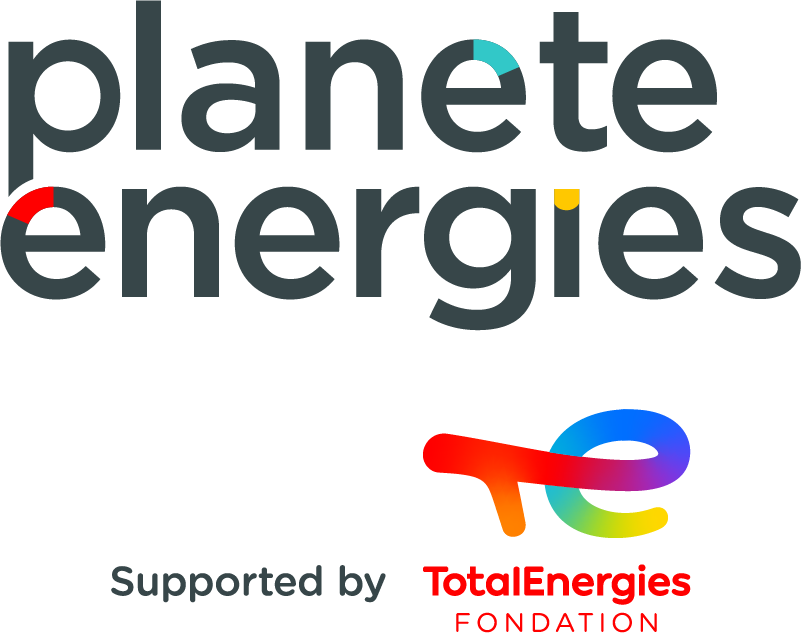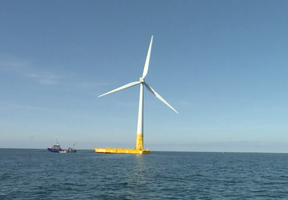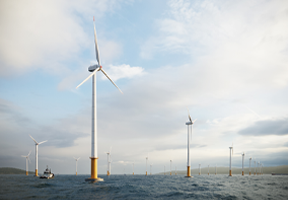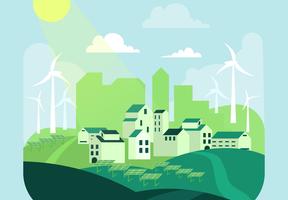Energy Equals Development
10 min read
Energy is what makes it possible to meet all basic human needs — water, food, healthcare and education. The same rule applies in both industrialized and developing countries: without energy, people would not have drinking water, hospitals, schools, housing or transportation.

© I. SANOGO / AFP - Solar panels in Safo Nassarawa, a village near Maradi in Niger.
Energy and Development
Some 1.3 billion people out of a total global population of 7 billion lack access to , and 2.6 billion do not have access to modern energy in the form of clean cooking and heating fuels and technology. has disastrous consequences on their daily lives and, more broadly, on the future of the planet.
The hardest hit are people living in the developing world, who often have no reliable source of energy or access to the related basic services.
Without fuel for their generators, they cannot pump groundwater to irrigate their fields. And the effective treatment of sewage requires energy too. The shortage of reliable energy results in the widespread use of , causing deforestation. Poor quality fuels and inefficient stoves pose fire hazards, pollute the air and emit greenhouse gases, while exposure to toxic fumes kills two million people a year.
Without electricity, schools and hospitals cannot operate effectively, and without efficient transportation, people cannot reach them anyway. Workers cannot get to areas where there are jobs and businesses are held back by the lack of reliable energy.
Without lighting, children cannot do their homework and their parents cannot earn extra income by working in the evenings. And it would be impossible to use a computer, even if they could afford one.
Moving Toward a Coordinated Approach
Tackling these large-scale problems requires a coordinated approach that brings together international organizations such as the United Nations and the World Bank, global corporations, NGOs, governments and local stakeholders.
Following the launch of its Sustainable Energy for All initiative, the UN has declared 2014-2024 the “Decade of Sustainable Energy for All.”1
The concept of “social business” was pioneered in the early 2000s by Professor Muhammad Yunus, Bangladeshi economist, Nobel Peace Prize laureate and founder of Grameen Bank, a bank for the poor. He defined a social business as one that aims to overcome a social problem, does not pay dividends, but makes a profit. The profit stays with the company for expansion and improvement, and the company must not be dependent on donations or public or private funds. As he put it: “A charity dollar has one life; a social business dollar can be invested over and over again.”
Some Examples
This philosophy has inspired many initiatives to provide people with simple, affordable technology for energy supply.
Lighting Africa is a joint initiative of the World Bank and the International Finance Corporation to accelerate the development of markets for clean off-grid lighting products in sub-Saharan Africa. Rechargeable solar lamps and cell phone chargers are sold or rented to consumers. Financing and business development solutions are also available. To date, the program has helped more than 7.7 million people across the region enjoy clean, affordable, solar-powered lighting.2
In Bangladesh, company Grameen Shakti3 has installed more than 200,000 solar home systems, comprising a small and a battery.
Non-profit SKG Sangha, active in India, encourages the production of from human waste.4





















